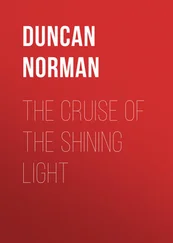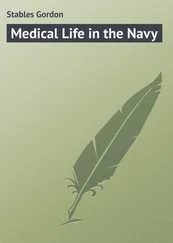Gordon Stables - The Cruise of the Land-Yacht «Wanderer» - or, Thirteen Hundred Miles in my Caravan
Здесь есть возможность читать онлайн «Gordon Stables - The Cruise of the Land-Yacht «Wanderer» - or, Thirteen Hundred Miles in my Caravan» — ознакомительный отрывок электронной книги совершенно бесплатно, а после прочтения отрывка купить полную версию. В некоторых случаях можно слушать аудио, скачать через торрент в формате fb2 и присутствует краткое содержание. Жанр: foreign_prose, Путешествия и география, на английском языке. Описание произведения, (предисловие) а так же отзывы посетителей доступны на портале библиотеки ЛибКат.
- Название:The Cruise of the Land-Yacht «Wanderer»: or, Thirteen Hundred Miles in my Caravan
- Автор:
- Жанр:
- Год:неизвестен
- ISBN:нет данных
- Рейтинг книги:5 / 5. Голосов: 1
-
Избранное:Добавить в избранное
- Отзывы:
-
Ваша оценка:
- 100
- 1
- 2
- 3
- 4
- 5
The Cruise of the Land-Yacht «Wanderer»: or, Thirteen Hundred Miles in my Caravan: краткое содержание, описание и аннотация
Предлагаем к чтению аннотацию, описание, краткое содержание или предисловие (зависит от того, что написал сам автор книги «The Cruise of the Land-Yacht «Wanderer»: or, Thirteen Hundred Miles in my Caravan»). Если вы не нашли необходимую информацию о книге — напишите в комментариях, мы постараемся отыскать её.
The Cruise of the Land-Yacht «Wanderer»: or, Thirteen Hundred Miles in my Caravan — читать онлайн ознакомительный отрывок
Ниже представлен текст книги, разбитый по страницам. Система сохранения места последней прочитанной страницы, позволяет с удобством читать онлайн бесплатно книгу «The Cruise of the Land-Yacht «Wanderer»: or, Thirteen Hundred Miles in my Caravan», без необходимости каждый раз заново искать на чём Вы остановились. Поставьте закладку, и сможете в любой момент перейти на страницу, на которой закончили чтение.
Интервал:
Закладка:
A kind-hearted carter man has told me a deal about the scenes around us, which I daresay the jolting over these rutty roads will soon drive out of my head.
On we go again.
Hopcroft’s Holt is an old-fashioned quiet inn close by intersecting roads that to the right branch off to Bicester. Stayed here to cook and eat.
Densely wooded and well hedged country all round, quiet and retired. It must be healthy here in summer.
Blacksmith has neatly mended my tricycle, which had broken down, so that I am able to make little excursions down by-roads. The village of Upper Heyford, about two miles from here, is as quaint and ancient-looking as if some town in the Orkneys.
June 23rd . – It needed all the strength of Corn-flower and Pea-blossom to get us into Deddington, for the hills are long and steep. We are furnished with a roller that drags behind the near after wheel, in case of accident or sudden stopping on a hill, and now for the first time we needed it.
New experiences come on this tour of mine every day, though adventures are but few, or have been hitherto. At Oxford and places en route from there we were reported to be the Earl of E – . At Deddington the wind changed, and we were taken for Salvationists on a pilgrimage. Salvationists are not liked in Deddington, and our arrival in the market-place, an ugly piece of rocky ground in the centre of the town (population about three thousand), was the occasion of a considerable deal of excitement. We had the horses out nevertheless, and prepared to spend the night there. We pulled blinds down, and I was about to batten down, as sailors say – in other words, get on the shutters – for the boys had taken to stoning each other, when the arrival of kindly Dr T – and an invitation to come to his grounds gave us relief and surcease from riot.
As the mob chose to follow and hoot, my Highland blood got up, and I got out with Hurricane Bob, the Newfoundland. The street was narrow, and further advance of those unmannerly louts was deemed by them indiscreet.
The change from the lout-lined street to the pleasant grounds of Dr T – ’s old house at Deddington was like getting into harbour from off a stormy sea, and I shall never forget the kind hospitality of the kindly doctor and his family.
To be taken for an earl in the morning and a captain of the Salvation Army in the evening is surely enough for one day.
This morning I visited the fine old church, and, as usual, got up into the steeple. If ever you go to Deddington, pray, reader, do the same. The town stands on a hill, and the steeple-top is one hundred feet higher; you can see for many miles. The country round is fertile, rolling hill and dale and valley, and densely treed. There are villages to the right, villages to the left, and mansions peeping from the woods wherever you turn your eye.
The steeple-head is covered with lead, and it is the custom of visitors to place a foot on the lead and cut a mark round it. Inside this they write their initials and the date. Here are footmarks of every size. You can even tell the age and guess the sex. Among them are those of children, but looking at some of the dates those babes must have grown men and women long ago, grown old and died. There is food for thought in even this.
We pass the village of Adderbury on our way to Banbury. From an artistic as well as antiquarian point of view it is well worth a visit. See it from the Oxford side, where the stream winds slowly through the valley. The village lies up yonder on the ridge among grand old trees, its church as beautiful as a dream. Looking in the opposite direction to-day a thoroughly English view meets my gaze. On one bank of the valley is a broad flat meadow, where cattle are wading more than ankle-deep in buttercups and grass; on the other merry haymakers are busy; away beyond are sunny braelands with a horizon of elms.
Delayed for a time after leaving Adderbury by the collapse of a traction engine on the road. We are now cooking dinner outside Banbury, the horses grazing quietly by the roadside.
June 24th . – We went quickly through Banbury, pretty though the place be. We stayed not even to have a cake. Truth is, we were haunted by our greatest foe, the traction engine fiend, which twice yesterday nearly brought us to grief and my narrative to a close.
The country ’twixt Banbury and the little village of Warmington, which lies in a hollow – and that hollow is a forest of fine trees – is beautiful. The soil in many of the fields a rich rusty red. There is what may well be called a terrible hill to descend before you reach the road that leads to Warmington. Once here, we found ourselves on a spacious green, with ample room for a hundred caravans. The village is primitive in the extreme – primitive and pretty. Are we back in the middle ages, I wonder?
Here is no hotel, no railway, no telegraph, no peep at a daily paper, and hardly stabling for a horse.
“I can only get stabling for one horse,” I said to a dry, hard-faced woman who was staring at me.
I thought she might suggest something.
“Humph!” she replied; “and I ain’t got stabling e’en for one horse. And wot’s more, I ain’t got a ’orse to stable!”
I felt small, and thought myself well off.
The people here talk strangely. Their patois is different from Berkshire, even as the style of their houses is, and the colour of the fields. Wishing yesterday to get a photograph of the old church at Adderbury, I entered an inn.
The round-faced landlord was very polite, but when I asked for a photographer, —
“A wot, sir?” he said.
“A photographer,” I replied, humbly.
“I can’t tell wot ye means, sir. Can you tell wot the gemman means, ’Arry?”
“’Arry” was very fat and round, wore a cow-gown, and confronted a quart pot of ale.
I repeated the word to him thrice, but ’Arry shook his head. “I can’t catch it,” he said, “no ’ow.”
When I explained that I meant a man who took pictures with a black box, —
“Oh, now I knows,” said the landlord; “you means a pott-o-graffer.”
But the children here that came down from their fastnesses in the village above are angels compared to the Deddington roughs. I was so struck with the difference that I asked four or five to come right away into the pantry and look at the saloon.
It rained hard all the afternoon and night, the dark clouds lying low on the hills – real hills – that surrounded us, and quite obscuring our view.
’Twixt bath and breakfast this morning, I strolled down a tree-shaded lane; every field here is surrounded by hedges – not trimmed and disfigured – and trees, the latter growing also in the fields, and under them cows take shelter from sun or shower. How quiet and still it was, only the breeze in the elms, the cuckoo’s notes, and the murmur of the unseen cushat!
We are near the scene of the battle of Edgehill. For aught I know I may be sitting near a hero’s grave, or on it. The village can hardly, have altered since that grim fight; the houses look hundreds of years old. Yonder quaint stone manor, they tell me, has seen eight centuries go by.
I don’t wonder at the people here looking quiet and sleepy; I did not wonder at the polite postmistress turning to her daughter, who was selling a boy “a happorth of peppercorns,” and saying, “Whatever is the day of the month, Amelia? I’ve forgot.”
Warmington may some day become a health resort. At present there is no accommodation; but one artist, one author, or one honeymooning pair might enjoy a month here well enough.
Started at nine for Warwick – fourteen miles. For some miles the highway is a broad – very broad – belt of greensward, with tall hedges at every side. Through this belt the actual road meanders; the sward on each side is now bathed in wild flowers, conspicuous among which are patches of the yellow bird’s-foot trefoil.
Читать дальшеИнтервал:
Закладка:
Похожие книги на «The Cruise of the Land-Yacht «Wanderer»: or, Thirteen Hundred Miles in my Caravan»
Представляем Вашему вниманию похожие книги на «The Cruise of the Land-Yacht «Wanderer»: or, Thirteen Hundred Miles in my Caravan» списком для выбора. Мы отобрали схожую по названию и смыслу литературу в надежде предоставить читателям больше вариантов отыскать новые, интересные, ещё непрочитанные произведения.
Обсуждение, отзывы о книге «The Cruise of the Land-Yacht «Wanderer»: or, Thirteen Hundred Miles in my Caravan» и просто собственные мнения читателей. Оставьте ваши комментарии, напишите, что Вы думаете о произведении, его смысле или главных героях. Укажите что конкретно понравилось, а что нет, и почему Вы так считаете.












